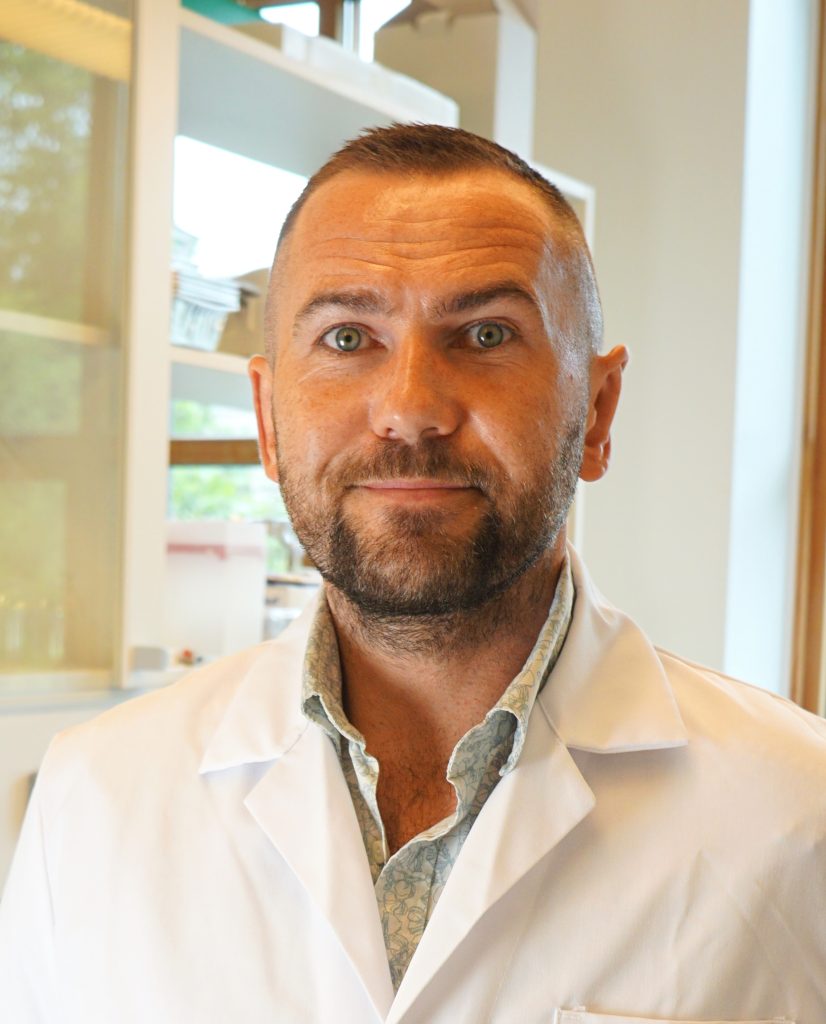Polish researcher Pawel Michal Lycus has been awarded a grant of DKK 9.9 million as part of the Novo Nordisk Foundation’s Research Leader Programme. His research project seeks to develop a biotech solution that could be a game-changer in reducing the use of synthetic fertilizer by improving the use of nitrogen in agriculture and thereby reducing the emissions of nitrous oxide (N2O), one of the most potent greenhouse gases.
As part of his research work at the Norwegian University of Life Sciences, Pawl Michal Lycus has established a research project focused on solving the so-called “nitrogen crisis”, an important challenge stemming from global agricultural food production and large use of synthetic nitrogen fertilizer. The production of synthetic nitrogen fertiliser alone accounts for 0.8% of global GHG emissions.
Currently, 60 percent of N2O emissions related to human activity come from agriculture. N2O is emitted from the microbial nitrogen transformations of synthetic fertilizers, which are used in agriculture to ensure high crop yields. The degradation makes nitrogen inaccessible to the crops, but another large issue is that the greenhouse gas potential of N2O is 273 times that of CO2.
Potential game changer for agricultural pollution and environmental impact
Ahead of the project start in March 2025, the research team has already conducted preliminary work with promising findings.
“From our first results, we found that specific microorganisms added to soil can significantly reduce the N20 emissions. This serves as our first proof of concept on how we can retain nitrogen in soil and improve the use of it, while simultaneously reducing the emissions,” Lycus explains.
The project seeks to provide a groundbreaking solution for the overuse of synthetic fertilizers and how to reduce N2O emissions from global food production.
Reinforcing effect on global, societal and individual level
The research project aims to be more efficient with nitrogen use, allowing farmers to use less fertilizer, thus reducing both water and air pollution. Essentially, the project seeks to utilize nature’s resources more efficiently.
“We anticipate that the project will have a positive impact on the global environmental footprint of agricultural food production and on individual farmers by reducing fertilizer costs,” continues Lycus.
Initially, the project will focus on testing the technology in Scandinavian countries. Soils worldwide have different consortia of bacteria that will influence the biological process. The research takes place in Norway and therefore the initial phase will concentrate on the surrounding countries. However, the solution has the potential for global application.
Fostering the evolvement of an emerging researcher
With 10 years of experience as a researcher, Lycus is still in the emerging phase of his career. The Novo Nordisk Foundation grant therefore serves as a crucial facilitator of fostering his development as a researcher:
“I’m still considered an early-stage researcher, but I have been in research for more than ten years, so it’s about time to get better established. With this grant, I am not only being given the opportunity to develop a possibly ground-breaking innovation, but also to gather and supervise my own research team,” Lycus notes.
With the grant, Lycus is provided resources to employ other PhD students.
In addition to Lycus, the research team includes two full-time researchers, two part-time technicians, and support from the Nitrogen Group at the Norwegian University of Life Sciences, which consists of 20 researchers.
41 researchers have received grants
The grant to Pawel Michal Lycus is part of the Novo Nordisk Foundation’s Research Leader Programme. The Foundation has just awarded DKK 427 million through the Programme for research within fields including health, disease and sustainability.
Individual grants of up to DKK 20 million have been awarded to 41 researchers at three different career stages. See all grant recipients here:
https://researchleaderprogramme.com/recipients/
Since 2018, the Foundation has awarded grants to more than 240 researchers through the Programme.
Further info:
Christian Mostrup, Head of Press, Novo Nordisk Foundation, cims@novo.dk

